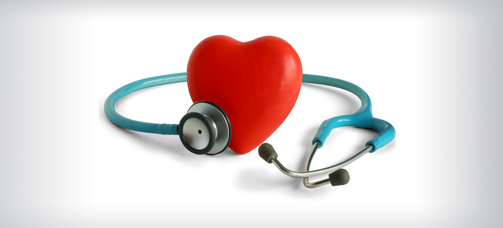Women’s Health – Common Conditions
High risk conditions prevalent in Windsor & Essex County:
You can find additional information on the website www.healthyontario.com
Metabolic Syndrome
Metabolic Syndrome is quite common in Windsor-Essex County and much of North America, but can be a very serious condition. This is the term used to describe the state a person’s body is in when that person has three or more of the following:
-
Abdominal Obesity
-
High Triglycerides
-
Low HDL-C (high-density lipoprotein cholesterol) – The “Good” Cholesterol
-
High blood pressure
-
Higher than normal fasting glucose (fasting blood sugar)
Metabolic Syndrome is a combination of medical disorders that increase the risk of developing cardiovascular disease and diabetes. As you age, your risk of developing this syndrome increases.
Metabolic syndrome is also known as insulin resistance, metabolic syndrome X, syndrome X, Reaven’s Syndrome or CHAOS (Australia).
The most important factors are:
Modifiable Lifestyle Factors:
-
excessive caloric intake
-
low physical activity
-
smoking
Non-Modifiable Lifestyle Factors:
-
Aging
-
Genetics
The following are criteria used by the National Cholesterol Education Program Adult Treatment Panel in Canada to determine if a person has developed Metabolic Syndrome:
Check if you have three (3) of the following symptoms or features:
Abdominal Obesity
Also known as central obesity, visceral, male-pattern, or apple-shaped adiposity; this means you are overweight with fat deposits mainly around the waist.
Abdominal obesity is determined by one of the following measurements:
| Body Mass Index | > 30 kg/m2 |
| Men – Waist Circumference | > 102 cm |
| Women – Waist Circumference | > 88 cm |
Elevated fasting blood sugar
5.7- 7.0 ( Insulin resistance)
| Normal Fasting Glucose range (normal blood sugar) | 3.6 – 6.0 |
| Impaired Fasting Glucose range (insulin intolerance) | 6.1 – 6.9 |
| Diabetes Mellitus range (Type 2 Diabetes) | >6.9 |
High blood pressure:
Blood pressure that is greater than or equal to 130/85 mmHg (Hypertension)
Abnormal fat levels in your blood (Dyslipidemia) – High Triglycerides (“sugary” fat) and low High Density Lipid (HDL-C) level
| Cholesterol | > 5.20 |
| Triglycerides | > 1.7 |
| HDL Cholesterol | < 1.3 women <1.0 men |
| LDL Cholesterol | > 2 |
| Total Cholesterol HDL-C ratio | > 4 |
Standard investigations for use in risk assessment: Fasting blood sugar, lipid profile, blood pressure check, weight, BMI, waist to hip ratio
Additional investigations for use in risk assessment:
Microalbuminuria: albumin can be measured in your urine
- urinary albumin excretion ratio ≥ 20 mg/min or
- albumin:creatinine ratio ≥ 30 mg/g
Associated diseases and signs are: elevated uric acid levels, fatty liver progressing to non-alcoholic fatty liver disease, polycystic ovary disease, hemochromatosis (iron overload); and acanthosis nigricans (a skin condition featuring dark patches).
CRP – C reative Protein: marker of inflammation
HbA1C – glycated hemoglobin : for those with elevated blood sugar.
The first line treatment is – change of lifestyle!
You can change your risk for developing metabolic syndrome. Losing enough weight to move you out of the overweight or obese category will help decrease your high blood pressure and fat levels. Eating foods low in sugar content (low Glycemic Index) can reduce insulin resistance. Exercise and reducing unhealthy stress will help too. In this way you can reduce the risk of developing metabolic syndrome.
Each & every one of these signs can be improved through:
- a healthy eating plan
- limit intake of saturated & trans fatty acids, simple sugars, refined carbohydrates
- emphasize a diet rich in vegetables, fruit, whole-grain cereals, & polyunsaturated and monounsaturated oils, including omega-3 fatty acids
-
achieve and maintain a healthy weight
-
waist circumference of, optimally, less than 80 cm for women
-
BMI of less than 27kg/m2 as a minimal goal and optimally less than 25kg/m2
-
-
engage in regular physical activity 4-7 days a week
-
60 min of light (walking, stretches etc.)
-
30-60 min of moderate
-
20-30 min of vigorous activity
-
It is also important to STOP smoking.
-
-
Medication
-
there are many natural/herbal products that can be used to reduce levels that are borderline but not high enough to need a prescription medication
-
-
Detoxification
-
Weight loss or weight gain
-
Control of inflammatory conditions of the intestines, joints and diabetes
-
First line therapy for healthy living
-
High quality, pharmaceutical grade supplements are available, ask us about them!
To optimize your health, Manage the type of condition you have, slow it’s progression or even reverse it:
Please follow the following recommendations outlined below when booking your Women’s Health Clinic appointments:
Diabetes
Every person with Diabetes should have an appointment for blood tests and review of health status every 3 months.
-
Your blood suger level will be checked and your medications adjusted as needed.
-
Your blood pressure will be checked at each visit.
-
Your wieght will be checked at each 3 month visit.
-
Your feet will also be checked at the visit.
-
You will be asked for a urine for microalbumin at least once a year.
-
You will be asked if you have seen your Optometrist every year.
-
You will be counselled as to lifestyle changes that can be made to improve your health with a focus on exercise and food habits.
www.diabetes.ca/ .
Hypertension (HTN)
is the name given to describe high blood pressure.
- Your blood pressure will be checked each time you come to the clinic. If a a change is seen, where it is beginning to rise: -you will be counselled as to lifestyle changes in diet, exercise and stress reduction in order to reduce your risk of hypertension. You will also be asked to take your blood pressure at home.
- If you have already been diagnosed with hypertension, you will be asked to monitor your blood pressure at home at least weekly and bring in the list at you check-up every 3 months.
- It is important to keep the blood pressure lower than 140/90 for most persons & 130/80 for those with diabetes to protect your kidneys & reduce the risk of strokes.
Some good resources are:
www.heartandstroke.ca
www.heartandstroke.ca/bp
www.hypertension.ca
For Diet
www.nhlbi.nih.gov/hbp/prevent/h_eating.htm
www.dieticians.ca
For online health and fitness calculators
www.healthtoolsonline.com/health-fit.html
Home measurement can:
-
confirm the diagnosis of hypertension
-
improve B/P control
-
reduce the need for medication
-
screen for white coat & masked HTN
-
help you understand why taking your medication is very important to prevent heart, kidney and brain problems.
Instructions to prepare for home BP measurement
To measure BP:
-
Obtain a home BP devise
-
Follow the directions that come with the devise
-
Rest & relax for 5min. before taking BP
-
Wait for at least 2 hours after a big meal
-
Wait for ½ hour after coffee or smoking
-
Empty your bladder & bowels before taking BP
-
Sit in a chair that supports your back & beside a table that you can put your arm on.
-
Place your arm on the table at heart level (may need a pillow or towel)
-
Do not cross your legs Take the first BP reading in the morning before taking medications and/or eating Take another BP reading in the evening before going to bed, bathing or taking medications Record them with the date & time in a diary that you can bring with you to the Doctor
Cholesterol
There are 4 types of fats that will be checked at least once a year by a blood test.
-
Cholesterol
-
Triglycerides
-
Low Density Lipids (LDL)
-
High Density Lipids (HDL)
-
Total Cholesterol HDL ratio
-
It is important to keep the levels in normal range to prevent heart disease and reduce the risk of stroke.
-
You will be counselled as to lifestyle changes that can be made to improve your health with a focus on exercise and food habits.
| Cholesterol | < 5.20 |
| Triglycerides | < 2.30 |
| HDL Cholesterol | > 1.30 |
| LDL Cholesterol | < 2 |
| Total Cholesterol HDL-C ratio | < 4 |
Obesity
Weight is measured and adjusted to your height to determine your risk for many conditions related to being overweight in the category of “Obesity”. BMI greater than 30.
Central Obesity: also known as visceral, male-pattern or apple-shaped adiposity, overweight with fat deposits mainly around the waist is one of the risk factors for Metabolic Syndrome.
Heart Disease
You will be checked yearly during your annual physical by an examination and blood tests to screen for any heart problems.
- An ECG will be done in the lab if needed.
A Cardiologist can determine what kind of heart disease you have developed.
-
CAD (coronary artery disease)
-
CHF (congestive heart failure)
-
CVD (cardiovascular disease)
-
MI (heart attack)
Once your condition is stable you will be monitored in the clinic again.
You will have an appointment every 3 months to check your heart function
Any chest pain should be checked right away! Come to the clinic or call the After-Hours number.
Warning Signs of a Heart Attack
Thyroid
You will be checked yearly through a physical exam and blood test to see if you have a problem with your Thyroid gland.
If you have a diagnosis of Hypothyroidism (too little or no Thyroid hormone) you will need to have a blood test before you get a new prescription. Usually every 3 months but at least every 6 months.
Depression
If you have been diagnosed as having BiPolar Depression, Psychosis, Schizophrenia, or any other psychiatric condition and are stable on your medication then you will need to be seen in clinic every 6 months for your routine assessment.
Menopause
Menopause is a time of change for women. Women will have some common symptoms but there are many differences in each woman’s experience. The Canadian Conference on Menopause, 2006 update has identified the physical and psychological changes related to low estrogen and aging:
-
Hot flashes and night sweats (vasomotor symptoms)
-
Mood and memory disturbance
-
Sleep disturbances
-
Weight gain
-
Vaginal dryness
-
Difficulty holding urine
-
Aches and pains
-
Skin changes
-
Eye changes
-
Oral health
-
Abnormal uterine bleeding
We can help you with these!
Dr. Sherman has completed a fellowship in anti-aging medicine and is certified through A4M in the USA to prescribe hormonal therapies
Saliva testing can be done to determine the need for treatment with bio-identical hormones.
Wondering if Bioidentical hormones can be helpful to you & if they are safer than synthetic hormones?
Link to an article by Kent Holtorf, MD
http://www.postgradmed.com/index.php?free=pgm_01_2009?article=1949&ex=1949
What is BIO-Identical Hormone Therapy?
This is an individualized approach based on detected hormonal levels through saliva testing using small amounts of plant derived hormones.
Personal or Domestic Crisis
We know that home, school or work life can be difficult for some women. Even if your health is perfect but you feel unhappy, anxious or unsafe in any area of your life – we encourage you to bring these issues to us.
There are also resources in the Windsor community where you can get help:
Crisis Center
If you feel severe stress, trapped, suicidal, severe depression or feel you are about to hurt your family or anyone else.
Address: 1086 Ouellette, Phone: 519-973-4435.
Hiatus House
Emergency shelter and crisis intervention for women and their children experiencing domestic violence * offers Transitional and Housing Support Program (THSP) * assists abused women in securing housing, social services, legal and counselling services in order to live in a violent-free environment. Support groups offered for children who witness domestic violence in the home. Phone: 1-800-265-5142, Phone: (519) 252-7781
Abortion Clinic
519-985-2662
Must have a booked appointment
MON.-FRI between 1-3 at Met. Hospital
DRUG & ALCOHOL Treatment information line
Phone: 1-800-565-8603
www.dart.on.ca
Gambling: Is becoming a problem in your life?
www.21StepsToStopGambling.com
www.ProblemGambling.ca
In Windsor = www.wrh.on.ca
Windsor regional problem gambling services in Windsor Regional Hospital 2109 Ottawa St. Suite 500
Phone: 519-254-2112 24 hours/7 days
For treatment, education, prevention & research- they provide Outpatient treatment & a 21 day closed cycle residential program for comprehensive assessment, individual counselling, pre-treatment groups, treatment groups, aftercare groups, family workshops & telephone counselling.





